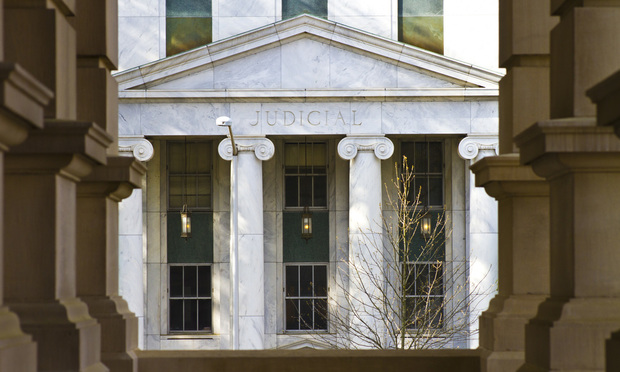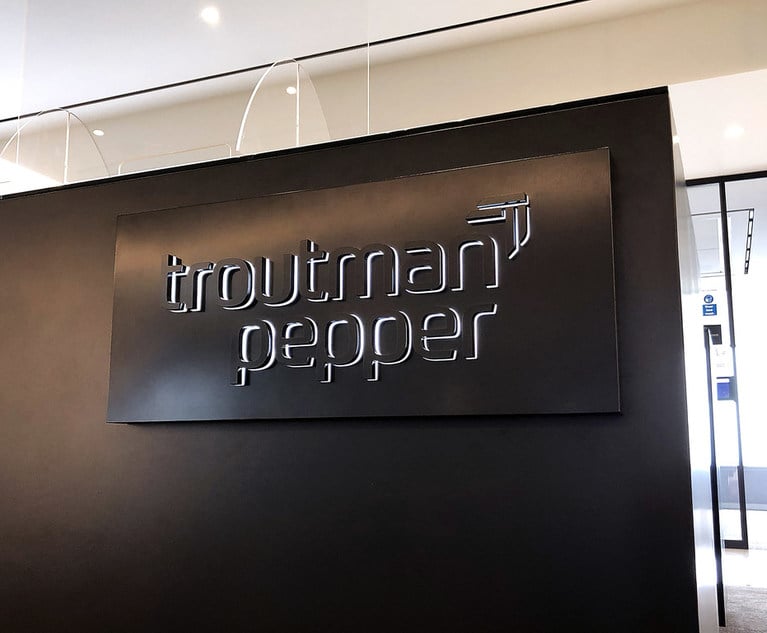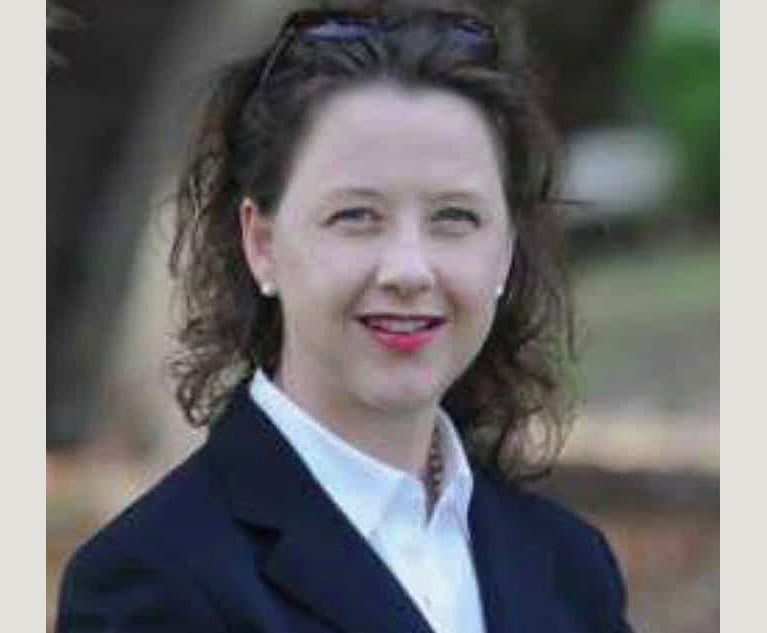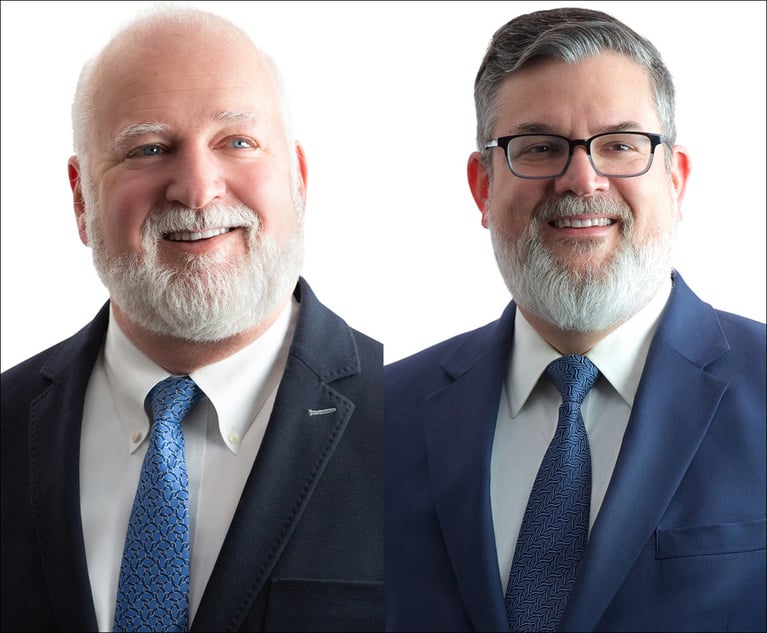Georgia Supreme Court Issues 2 Lawyer Discipline Opinions, 1 With Dissent
The justices rejected one lawyer's petition for voluntary discipline and suspended one lawyer in issuing two attorney discipline decisions Monday.
September 10, 2018 at 11:05 AM
16 minute read
 Georgia Supreme Court building. (Photo: John Disney / ALM)
Georgia Supreme Court building. (Photo: John Disney / ALM)
The Supreme Court of Georgia on Monday issued the following attorney discipline decisions:
In the Supreme Court of Georgia
Decided: September 10, 2018
S18Y0666. IN THE MATTER OF DAVID THOMAS DORER.
PER CURIAM.
This disciplinary matter is before the Court on the petition for voluntary discipline filed by Respondent David Thomas Dorer (State Bar No. 934408) prior to the filing of a formal complaint. In his petition, Dorer, who has been a member of the Bar since 2012, seeks a Review Panel reprimand for his admitted violation of Rule 8.4 (a) (4), the maximum penalty for which is disbarment. The State Bar has responded, recommending that this Court accept the petition.
In his petition, Dorer states that in November 2014, a client hired him to represent her husband in a state forfeiture matter. In order to meet the statutory deadlines, Dorer states that he prepared a verified answer to which he signed the client's name, indicating that he had express permission to do so. Dorer had the signature notarized by his assistant and filed the document in court in response to the forfeiture petition. Dorer further states that he met with his client and, based on the conversation, did not substitute a verified answer containing the actual signature of his client. According to the response filed by the State Bar of Georgia, a Houston County grand jury indicted Dorer, as well as his assistant, under OCGA § 16-10-20 (making it a felony to file false statements and writings with any state or local government agency) and OCGA § 16-10-20.1 (making it a felony to file false documents in a court of this state).1 Dorer entered a negotiated plea to the charges and pleaded guilty to the misdemeanor offense of violating OCGA § 45-17-8 (e): “In performing any notarial act, a notary public shall confirm the identity of the document signer, oath taker, or affirmant based on personal knowledge or on satisfactory evidence.”2 Dorer later filed this petition for voluntary discipline.
Dorer contends that his actions did not violate Rule 8.4 (a) (3) because, in his view, his misdemeanor conviction did not involve a crime of moral turpitude. What Dorer expressly admitted in his guilty plea is that he failed to confirm the identity of the party signing the verified answer in the forfeiture matter. Dorer did not himself notarize the document and he asserts in his petition that his actions violated Rule 8.4 (a) (4). 4
Dorer asserts that his proposed discipline is in line with this Court's precedent. See In the Matter of Davis, 291 Ga. 169 (728 SE2d 548) (2012) (Review Panel reprimand for two violations of Rule 8.4 (a) (4) arising from attorney's action of falsifying client's signature on court documents and having those signatures notarized); In the Matter of West, 301 Ga. 901 (804 SE2d 340) (2017) (Review Panel reprimand an appropriate sanction for violations arising out of attorney's having signed his client's name to an application for asylum without any intent to deceive or falsify).5 In mitigation of discipline, Dorer asserts that he has no prior disciplinary history; that he has cooperated in this disciplinary proceeding; that he is remorseful; and that he otherwise has good character and reputation in the legal community, but he includes no attestations to his character or reputation.
In its response, the Bar agrees that it is best to consider this case solely as a violation of Rule 8.4 (a) (4) 6 but contends that the mitigating factors should include only that Dorer has no prior disciplinary history; that he has displayed a cooperative attitude; and that he is inexperienced in the practice of law. The Bar contends that under the circumstances of this case, a Review Panel Reprimand is appropriate. See Davis, supra; West, supra; In the Matter of Swain, 290 Ga. 678 (725 SE2d 244) (2012) (public reprimand for notarizing a signature outside the presence of the signer). But while the conclusions that Dorer violated Rule 8.4 (a) (4) and that a Review Panel reprimand is appropriate may ultimately, in fact, be sound ones, they cannot be drawn reasonably from the sparse admissions contained in the petition.
By definition, a violation of Rule 8.4 (a) (4) involves “dishonesty, fraud, deceit or misrepresentation.” To conclude, therefore, that the petition shows a violation of Rule 8.4 (a) (4), the petition must admit facts that would establish dishonesty, fraud, deceit, or misrepresentation. We find no such admission in the petition. According to the petition, Dorer signed a verification for his client and had his assistant notarize the verification. If the signature purported to have been affixed by the client himself, that certainly could amount to deceit or a misrepresentation. The signature, however, did not purport to have been affixed by the client. To the contrary, the signature was followed immediately by the notation “WEP DD,” which any reasonable lawyer would understand to be a disclosure that the signature was affixed by “DD”—presumably Dorer—with the express permission of his client. When a lawyer signs a document for a client, with the express permission of the client and disclosing to those to whom the document is directed that the signature was affixed by the lawyer for the client, the lawyer has committed no ethical violation. To the contrary, that is something lawyers routinely do.
Perhaps the deceit and misrepresentation was not the signature itself, but instead, the representation that Dorer had permission to affix the signature to the verification. But no admission in the petition supports such a conclusion. Indeed, the petition is silent about whether Dorer had permission to sign the verification. Dorer does admit in the petition that he entered a plea of guilty to a criminal violation of OCGA § 45-17-8 (e), which requires the notary to confirm the identity of the document signer, oath taker, or affirmant. But that admission does not justify an inference that Dorer lacked the permission of his client to sign the verification, because OCGA § 45-17-8 (e) requires a notary merely to confirm the “identity of the document signer, oath taker, or affirmant” (emphasis supplied), and it says nothing about a notary confirming the authority of a person signing a document under a claim of authority. Whatever formed the basis for the plea, we cannot infer from the fact of the plea alone that Dorer lacked permission from his client to sign the verification and cannot, therefore, conclude that the plea shows a violation of Rule 8.4 (a) (4).
Dorer may have lacked permission to sign the verification, but the petition does not show a lack of permission. Perhaps the petition is incomplete, or maybe it misrepresents what actually happened.7 But we find no basis in the petition for discipline under Rule 8.4 (a) (4). In the absence of a better understanding of exactly what Dorer did to violate that Rule and why Rule 8.4 (a) (3) is not applicable, we reject his petition. That is what this Court has done in other cases in which petitions for voluntary discipline lacked sufficient detail for us to determine that a violation actually occurred or for us to understand the nature of the conduct amounting to the violation. See, e.g., In the Matter of Braziel, 303 Ga. 154, 156 (810 SE2d 476) (2018) (rejecting petition for voluntary discipline in part “[b]ecause of the uncertainty regarding the underlying facts”); In the Matter of West, 299 Ga. 731, 732 (791 SE2d 781) (2016) (rejecting petition for voluntary discipline where “the facts admitted by West simply do not support the conclusion that he violated Rule 1.2 (d)”). Especially considering that a Rule 8.4 (a) (4) violation is among the most serious charges that can be leveled against an attorney—it is a violation that commonly warrants disbarment—we do not accept a Review Panel reprimand as a sufficient sanction for a putative Rule 8.4 (a) (4) violation without a full understanding of the underlying facts.
Petition for voluntary discipline rejected. Nahmias, P. J., Benham, Hunstein, Blackwell, Boggs, and Peterson, JJ., concur. Melton, C. J. dissents.
S18Y0666. IN THE MATTER OF DAVID THOMAS DORER
MELTON, Chief Justice, dissenting.
Based on Dorer's petition for voluntary discipline, the majority concludes that there is insufficient evidence to show that David Thomas Dorer violated Georgia Rule of Professional Conduct 8.4 (a) (4), and, concomitantly, a Review Panel reprimand is not appropriate. I believe, however, that Dorer's admissions show that he violated Rule 8.4 (a) (4), and a Review Panel reprimand is an appropriate sanction. Accordingly, I respectfully dissent.
Dorer pled guilty to OCGA § 45-17-8 (e),9 but he disclaimed any conduct involving moral turpitude in his petition for voluntary discipline. Rule 8.4 (a) (4) applies to professional conduct involving “dishonesty, fraud, deceit or misrepresentation,” like acts prohibited by OCGA § 45-17-8 (e). We have found the appropriate sanction for this type of violation of Rule 8.4 (a) (4) is a Review Panel reprimand. See In the Matter of Ellis, 296 Ga. 83 (764 SE2d 856) (2014) (Review Panel reprimand was an appropriate sanction for attorney's conduct in failing to supervise an employee who signed the client's name without authorization); In the Matter of Davis, 291 Ga. 169 (728 SE2d 548) (2012) (Review Panel reprimand for two violations of Rule 8.4 (1) (4) was appropriate where attorney twice falsified and notarized the signature of his client on documents, reasoning that he knew or should have known such actions were improper even where the client had in fact signed a separate verification form before a notary); In the Matter of Swain, 290 Ga. 678 (725 SE2d 244) (2012) (public reprimand was appropriate for the admitted violations of Rules 1.2 (d) and 8.4 (a) (4), consisting of notarizing the signature on documents executed outside the attorney's presence). In line with this precedent, Dorer has asked for this appropriate discipline, and the State Bar has agreed to this resolution. Under these clear-cut circumstances in which the petitioner admits to the crime, agrees that he has violated the applicable rule, and requests the appropriate punishment, we should accept the petition for voluntary discipline. To do otherwise, as the majority does, simply frustrates the efficiency of the disciplinary process, both from the perspective of protecting the integrity of the State Bar and allowing the disciplined petitioner to reach the resolution of his case.
1 We note that the record consists only of Dorer's petition and the State Bar's response.
2 The record suggests that Dorer is not a notary public, and so one of the facts that is unclear from the record is whether he pleaded guilty as a party to the crime. See OCGA § 16-2-20.
3 A lawyer violates Rule 8.4 (a) (3) when he is convicted of a misdemeanor involving moral turpitude where the underlying conduct relates to his fitness to practice law.
4 This rule states: “It shall be a violation of the Georgia Rules of Professional Conduct for a lawyer to … engage in professional conduct involving dishonesty, fraud, deceit or misrepresentation …”
5 In neither of these cases did the lawyer plead guilty to a misdemeanor arising from the conduct at issue. Compare In the Matter of Youn, 300 Ga. 143 (793 SE2d 379) (2016) (accepting voluntary discipline of eighteen-month suspension for admitted violation of Rule 8.4 (a) (3)).
6 We note it is unclear from the record or the Bar's brief why the admitted conduct would not constitute a violation of Rule 8.4 (a) (3). See In the Matter of Jones, 293 Ga. 264 (1) (744 SE2d 6) (2013) (misdemeanors involving dishonesty may be crimes of moral turpitude).
7 In either event, we note that the record in this case is especially sparse. Among other things, it does not include a copy of the verification that Dorer admitted to signing for his client, the indictment or accusation to which he entered a plea of guilty, or his plea colloquy.
8 See In the Matter of Nicholson, 299 Ga. 737, 741 (791 SE2d 776) (2016).
9 “In performing any notarial act, a notary public shall confirm the identity of the document signer, oath taker, or affirmant based on personal knowledge or on satisfactory evidence.” OCGA § 45-17-8 (e).
In the Supreme Court of Georgia
Decided: September 10, 2018
S18Y1023. IN THE MATTER OF MATTHEW THOMAS DALE.
PER CURIAM.
This disciplinary matter is before the Court on the petition for voluntary discipline filed by Matthew Thomas Dale (State Bar No. 787590), pursuant to Bar Rule 4-227 (b). Dale, who became a member of the Bar in 2010, entered a guilty plea on October 6, 2017 to one count of “Peeping Tom,” in violation of OCGA § 16-11-61. The indictment charged him with unlawfully going upon a residential premises of a named individual for the purpose of becoming a peeping tom, at which time he peeped through the windows of the residence and invaded the individual's privacy. Dale was sentenced, as a first offender, to four years to be served on probation, provided that he complies with the terms of his probation, which include that he pay restitution to the victim in the amount of $1,200, that he perform 40 hours of community service, and that he serve four weekends in jail. The State Bar acknowledges that these three conditions have already been satisfied, and also that Dale has paid a fine and surcharges to the court, and that he pays monthly probation and Georgia Crime Victims Emergency Fund fees of $32. Dale also remains subject to producing specimens as requested to be tested for the presence of drugs and alcohol, and to protective and no-contact orders with respect to the victim and her family, as well as a waiver of his Fourth Amendment rights.
By pleading guilty, Dale admitted to the conduct described in the indictment. Dale acknowledges that, by his conduct, he has violated Rule 8.4 (a) (2), for which the maximum sanction is disbarment. By his petition, Dale seeks the imposition of a suspension either for 18 months or until the conclusion of his term of probation, whichever is longer. Dale also agrees he shall be required to demonstrate to the Office of General Counsel that: (a) his probation has terminated; and (b) he continues to receive mental health treatment by his present counselor or a board-certified and licensed mental health professional, who has certified that he is fit to practice law. If the State Bar agrees that these conditions have been met, it will submit a notice of compliance to the Supreme Court of Georgia. Dale agrees he shall not engage in the practice of law until the Court issues an order granting the request for reinstatement.
In mitigation, Dale notes his lack of a prior disciplinary record, that he was suffering from personal and emotional problems at the time of the offense, that he has made a full and free disclosure to the disciplinary authorities and has been cooperative towards the disciplinary proceedings, that he otherwise has good character and a reputation for such (demonstrated by the numerous character letters he attaches to his petition), that he is remorseful and acknowledges the nature of his wrongdoing, and that his conduct was not related to a client or his practice of law. The record includes numerous letters from individuals who have known Dale for a signficant period of time in various roles and settings. Each of the letters expresses the writer's opinion that Dale's conduct represents an aberration in an otherwise commendable life. Some of the writers indicate they have personal knowledge that the criminal conduct arose at a time when Dale was facing a challenging time in his personal and professional life. And some of the writers vouch for the fact that Dale has expressed deep remorse for his conduct and that they believe he has been rehabilitated. The State Bar agrees that the voluntary discipline sought by Dale is an appropriate level of discipline under the circumstances and in light of the applicable mitigating factors. See Standards 9.32 (a). 9.32 (c), 9.32 (e), 9.32 (g), and 9.32 (l), Standards for Imposing Lawyer Sanctions, American Bar Association Center for Professional Responsibility (1992); see also In the Matter of Jack O. Morse, 266 Ga. 652, 653 (470 SE2d 323) (1966) (this Court relies upon these standards for guidance in determining punishment in disciplinary cases).
Although violation of Rule 8.4 (a) (2) authorizes disbarment, a felony conviction does not necessarily demand disbarment where there are mitigating circumstances supporting the imposition of a suspension. In the Matter of Waldrop, 283 Ga. 80, 81 (656 SE2d 529) (2008); In the Matter of Haugabrook, 278 Ga. 721 (606 SE2d 257) (2004). Having reviewed the record, we find that an 18-month suspension with the above-noted conditions on reinstatement is the appropriate sanction in this matter. See In the Matter of Corley, 303 Ga. 290 (811 SE2d 347) (2018); In the Matter of Ortman, 289 Ga. 130 (709 SE2d 784) (2011); In the Matter of Paine, 280 Ga. 208, 210 (625 SE2d 768) (2006).
Accordingly, we hereby order that Matthew Thomas Dale is suspended from the practice of law in the State of Georgia for a period of time to end at the expiration of 18 months or at the termination of his criminal probation, whichever is longer. At the conclusion of this period, Dale may seek reinstatement by demonstrating to the State Bar's Office of General Counsel that he has met the conditions for reinstatement, specifically that his probation has terminated, that a board-certified and licensed mental health professional has certified that he is fit to return to the practice of law, and that he is continuing to receive mental health treatment by a board-certified and licensed mental health professional. If the State Bar agrees that the conditions have been met, it is directed to submit a notice of compliance to this Court, at which time this Court will issue an order granting or denying reinstatement. Dale is reminded of his duties under Bar Rule 4-219 (c).
Petition for voluntary discipline accepted. Suspension with conditions for reinstatement. Melton, C. J., Nahmias, P. J., Benham, Hunstein, Blackwell, Boggs, and Peterson, JJ., concur.
This content has been archived. It is available through our partners, LexisNexis® and Bloomberg Law.
To view this content, please continue to their sites.
Not a Lexis Subscriber?
Subscribe Now
Not a Bloomberg Law Subscriber?
Subscribe Now
NOT FOR REPRINT
© 2025 ALM Global, LLC, All Rights Reserved. Request academic re-use from www.copyright.com. All other uses, submit a request to [email protected]. For more information visit Asset & Logo Licensing.
You Might Like
View All

Troutman Pepper Says Ex-Associate Who Alleged Racial Discrimination Lost Job Because of Failure to Improve
6 minute read
Judge Orders Acquittal of Ex-Prosecutor on 1 of 2 Counts in Misconduct Trial Over Ahmaud Arbery Case
3 minute read
Trending Stories
- 1Legal Restrictions Governing Artificial Intelligence in the Workplace
- 2Failure to Adequately Inform Patients
- 3'FTX' One Year Later: The Impact on Examiner Practice in Bankruptcy Courts
- 4Gen AI Legal Contract Startup Ivo Announces $16 Million Series A Funding Round
- 5DOJ's Flawed Thinking in Challenging HPE-Juniper Merger
Who Got The Work
J. Brugh Lower of Gibbons has entered an appearance for industrial equipment supplier Devco Corporation in a pending trademark infringement lawsuit. The suit, accusing the defendant of selling knock-off Graco products, was filed Dec. 18 in New Jersey District Court by Rivkin Radler on behalf of Graco Inc. and Graco Minnesota. The case, assigned to U.S. District Judge Zahid N. Quraishi, is 3:24-cv-11294, Graco Inc. et al v. Devco Corporation.
Who Got The Work
Rebecca Maller-Stein and Kent A. Yalowitz of Arnold & Porter Kaye Scholer have entered their appearances for Hanaco Venture Capital and its executives, Lior Prosor and David Frankel, in a pending securities lawsuit. The action, filed on Dec. 24 in New York Southern District Court by Zell, Aron & Co. on behalf of Goldeneye Advisors, accuses the defendants of negligently and fraudulently managing the plaintiff's $1 million investment. The case, assigned to U.S. District Judge Vernon S. Broderick, is 1:24-cv-09918, Goldeneye Advisors, LLC v. Hanaco Venture Capital, Ltd. et al.
Who Got The Work
Attorneys from A&O Shearman has stepped in as defense counsel for Toronto-Dominion Bank and other defendants in a pending securities class action. The suit, filed Dec. 11 in New York Southern District Court by Bleichmar Fonti & Auld, accuses the defendants of concealing the bank's 'pervasive' deficiencies in regards to its compliance with the Bank Secrecy Act and the quality of its anti-money laundering controls. The case, assigned to U.S. District Judge Arun Subramanian, is 1:24-cv-09445, Gonzalez v. The Toronto-Dominion Bank et al.
Who Got The Work
Crown Castle International, a Pennsylvania company providing shared communications infrastructure, has turned to Luke D. Wolf of Gordon Rees Scully Mansukhani to fend off a pending breach-of-contract lawsuit. The court action, filed Nov. 25 in Michigan Eastern District Court by Hooper Hathaway PC on behalf of The Town Residences LLC, accuses Crown Castle of failing to transfer approximately $30,000 in utility payments from T-Mobile in breach of a roof-top lease and assignment agreement. The case, assigned to U.S. District Judge Susan K. Declercq, is 2:24-cv-13131, The Town Residences LLC v. T-Mobile US, Inc. et al.
Who Got The Work
Wilfred P. Coronato and Daniel M. Schwartz of McCarter & English have stepped in as defense counsel to Electrolux Home Products Inc. in a pending product liability lawsuit. The court action, filed Nov. 26 in New York Eastern District Court by Poulos Lopiccolo PC and Nagel Rice LLP on behalf of David Stern, alleges that the defendant's refrigerators’ drawers and shelving repeatedly break and fall apart within months after purchase. The case, assigned to U.S. District Judge Joan M. Azrack, is 2:24-cv-08204, Stern v. Electrolux Home Products, Inc.
Featured Firms
Law Offices of Gary Martin Hays & Associates, P.C.
(470) 294-1674
Law Offices of Mark E. Salomone
(857) 444-6468
Smith & Hassler
(713) 739-1250






